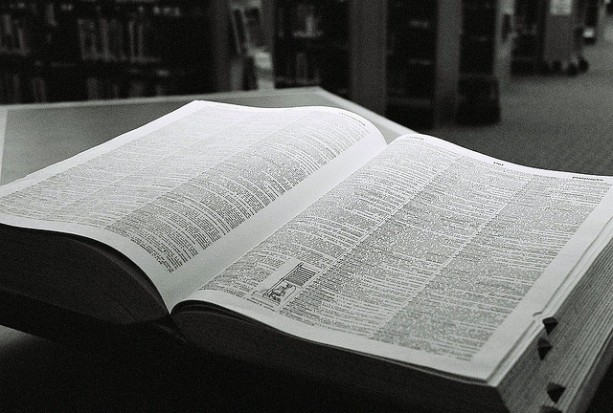
One Word: Contemporary Writers on the Words They Love or Loathe
Edited by Molly McQuade
—Reviewed by Ellen O’Connell
A couple of years ago, sixty-six authors were asked to write a short meditation on what one word means the most to them, and why. The result, edited by Molly McQuade, is One Word, a collection of slang, poetry, rants, one-line zingers, etymological reflections, and grammar lessons. This is a quick read, something to pick up and read in short bursts rather than all at once. It is writing about writing- poetry for non-poets.
The meditations are arranged alphabetically, with writer Joel Brouwer starting things off with a reflection on the familiar word “a.” Among other functions, “a” appears in mathematical equations, standing in for something unknown. It is also the fundamental building block of the English language. According to Brouwer, “a” is “a wager, a leap of faith.”
Following this is a meditation by poet Brenda Hillman on the connective “as,” a word she finds to be as versatile as a poem or a person, a word that forms similes and stands in as both preposition and adverb.
But there are heftier words, too. Joan Connor writes of her associations with “lilac,” the bush under which she had her first kiss, the scent of her summer home of childhood.
Then there are the words most readers will never have heard. “Kankedort” is one, and since appearing in Chaucer’s Troilus and Criseyde has never reared its head again. Writer Erin McGraw looks into the etymology of the 1920s slang term “darb,” offering up several guesses as to its genesis. One writer, Katherine Karlin, defamiliarizes the word “corn,” a word she loves in reference not to the vegetable but to a generation (as in, “that song is corny”).
One Word is certainly a fun read, and the authors are often witty in their enthusiasm. The collection of words is organized alphabetically rather than thematically or linguistically (in addition to English, several other languages are represented, including French, German, Japanese, Quecua, Basque, and Igbo), which at times seems a little odd. But the effect is pleasing overall, offering a collage of not only function but also sound, sight, and meaning.
Buy the book: Skylight Books, Powell’s, Amazon
Ellen O’Connell has been published in several national literary magazines and is a contributing writer to the forthcoming book, The Moment (2011 Harper Perennial). This year she was nominated for the 2011 Pushcart Award and currently teaches creative writing at UC Santa Barbara.
*Photo courtesy of greeblie.





Send A Letter To the Editors